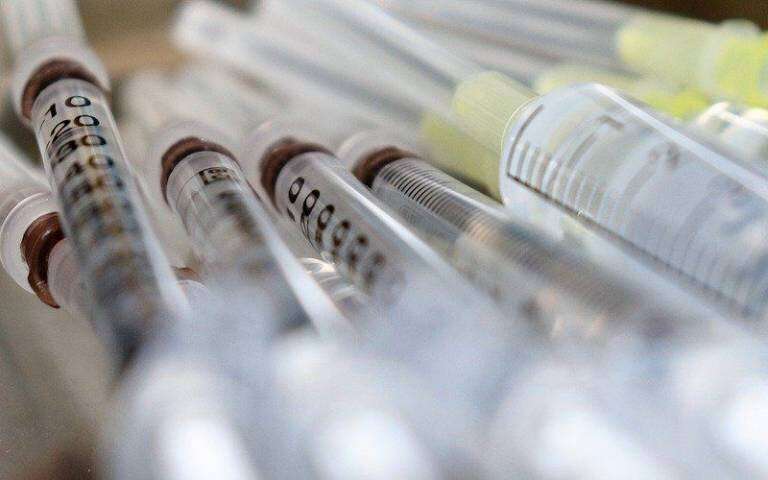
More than four in five (86%) people who were unsure or said no to a COVID-19 vaccine in December 2020 would now take one, or have already been vaccinated, finds the latest research by UCL’s Virus Watch study.
Published today, the new findings, part of UCL Virus Watch’s longitudinal study of over 46,000 people in England and Wales, show the fall in vaccine hesitancy was consistent across all ethnic groups.
In this analysis, researchers found 87% of White British adults who were hesitant about taking a COVID-19 vaccine in December 2020 went on to change their mind and plan to take, or have already taken, a vaccine by February 2021. The respective figure is 90% in adults from South Asian backgrounds and 88% in adults from Black backgrounds.
This shift away from vaccine hesitancy was also consistent across people from all levels of social deprivation, ranging from 79% in more deprived areas to 89% in the least deprived areas.
However, despite the overall increase in vaccine acceptance, disparities still exist across some groups. The UCL Virus Watch analysis finds 25 to 35 year olds were almost nine times more likely to intend to refuse a COVID-19 vaccine last month compared to over 75 year olds, after adjusting for other factors such as sex, ethnicity, deprivation and underlying health condition.
The research team looked at reasons why some people might be more or less likely to be vaccine hesitant. Older adults were least likely to have concerns about safety of the vaccine, and most likely to be concerned about contracting COVID-19. White British participants had fewer concerns about COVID-19 vaccine safety and its effectiveness compared to participants from most minority ethnic backgrounds, but concerns about catching COVID-19 or getting ill do not differ by ethnicity.
Dr. Parth Patel (UCL Institute of Health Informatics) clinical research fellow and lead author of the paper, said: “The really good news is the overwhelming majority of people who were reluctant about taking a vaccine just a few months ago have now changed their minds. Most people are considering the vaccine carefully and saying ‘yes’ when it’s their turn. However, that does not mean race and class disparities in vaccination rates will disappear. We should think twice before putting those differences down to vaccine hesitancy.”
Professor Rob Aldridge (UCL Institute of Health Informatics), co-lead investigator of the UCL Virus Watch study, said: “More and more people in the UK want to get vaccinated. Our work shows the importance of making repeated offers of the vaccine because so many people have changed their mind in recent months. Getting vaccinated should be made as easy as possible over the coming months with clear information and advice provided by trusted community leaders including younger adults as they become eligible for vaccination.”
The UCL Virus Watch study was launched in April 2020, funded by UK Research and Innovation (UKRI), as part of the UK Government’s rapid research response to the pandemic. Its longitudinal study of 46,539 people in England and Wales is the largest and most comprehensive community cohort study of COVID-19 in the UK.
As part of this study, a total of 20,792 adult participants responded to the survey question “Would you accept a COVID-19 vaccine if offered?” in December 2020 and 20,284 people responded to the same question in February 2021. A total of 14,713 adult participants responded to the survey question at both time points.
In December 2020, 89% of participants responded “Yes”; 9% said they were “Unsure”; and 2% responded “No.” In February 2021, 38% participants responded “Already had a COVID-19 vaccine”; 59% responded “Yes”; 1% said they were “Unsure”; and 1% responded “No.”
Participants were also asked their views about COVID-19 and receiving a vaccine by saying whether they agreed with a number of statements. These included statements such as whether they were concerned that the COVID-19 vaccine would not have been tested enough or concerned that that the vaccine would make you feel as ill as COVID-19 does.
Source: Read Full Article
